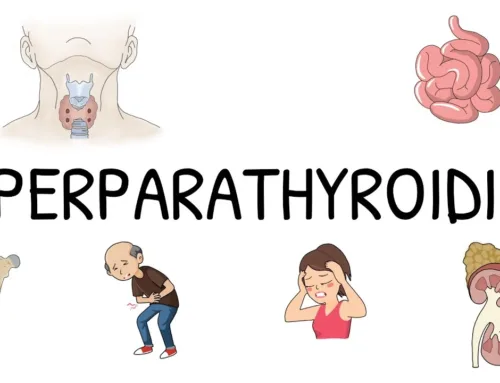Hirsutism is a condition that causes excess body hair to develop on your face, chest, and back. It affects nearly 7 percent of women. Although it can be uncomfortable, hirsutism isn’t life-threatening and usually isn’t a sign of disease. Talk with your doctor if you’re concerned about hirsutism or another symptom you’re experiencing.

Symptoms
Hirsutism is a condition in which you have excessive body hair. This can be on your face, chest, back, abdomen, and thighs. The hair growth may be thicker or darker than normal and more noticeable than other people’s body hair. You might also notice a darkening of the skin under the chin or around the nipples (areolae).
Read on if you’re experiencing hirsutism and want to know what it feels like!
Causes
Hirsutism is a condition that causes excessive hair growth on the face and body. Hormonal imbalances can cause it, but they can also be hereditary.
Hirsutism is one of the symptoms of polycystic ovary syndrome (PCOS), which affects up to 5% of women in their reproductive years. PCOS is a hormonal disorder that results in hyperandrogenism–an overproduction of male hormones like testosterone–and may cause insulin resistance, weight gain, and irregular periods or lack thereof (amenorrhea).
Although heredity plays a role in determining whether you’ll develop hirsutism as an adult woman diagnosed with PCOS as a teenager or young adult, other factors, such as obesity, also play an important role in developing this condition later on in life.
Causes of excess body hair
Androgens are responsible for developing male sex characteristics, such as facial hair and deep voices. In women, high levels of these hormones can lead to excess body hair growth on the face, chest, or backside–a condition known as hirsutism. Hirsutism is caused by an imbalance of androgen hormones, which both men and women naturally produce.
If you have this condition, it may be due to the following:
- Hormonal imbalance in women (polycystic ovary syndrome)
- Ovarian hyperandrogenism (overproduction of testosterone) or hyperinsulinemia (high insulin levels)
- Congenital adrenal hyperplasia (CAH), which causes excess production of male sex hormones called androgens but also results in salt wasting due to low cortisol production
Diagnosing hirsutism
A doctor diagnoses hirsutism. The doctor will ask you about your symptoms and family history, and they may do a physical exam. In women with hirsutism, the doctor will look at the hair on their body to see if it’s thicker than normal or darker than it should be. They might also measure how much testosterone is in the blood.
If you have hirsutism, talk to your healthcare provider about getting tested for this condition.
How Hirsutism Affects Relationships
Hirsutism can have a significant impact on relationships. It’s important to know that you’re not alone and resources are available to help you work through the emotional impact of your condition.
It’s best to talk about hirsutism with a partner before getting intimate or getting married, as it may affect their feelings about the relationship. Talking about it early helps you work through these issues together so that they don’t become bigger than they have to be later on down the road.
If you decide not to tell someone who is close to you but hasn’t yet been told about your condition, consider having them read this article (or another one like it) so that they know what’s going on should someone mention something about excess body hair during conversation!
How to Talk to a Partner About Hirsutism
Talking to your partner about hirsutism is a difficult conversation. It can be even more difficult to determine how your partner will react. To make things easier, follow these steps:
- Be honest. Your partner deserves to know the truth about what’s going on in your body, and they should be able to trust that you aren’t hiding anything from them. If something is wrong with their body or appearance, they would want to know how they can fix it–and that goes for you too!
- Please keep the conversation private until you can share it with others (like family members). You may think everyone needs an explanation as soon as possible, but remember that some people need more time than others before they’re ready for such personal discussions.* Ask any questions that come up during this process so there aren’t any unanswered concerns later down the road when things get heated again between partners who don’t know where each other stands regarding issues like hirsutism.*
Natural treatment options
If you’re looking for natural treatments for hirsutism, talk to your doctor about what’s available. Although there isn’t much research on the effectiveness of natural remedies for the condition, some women have reported success.
Whether it’s a prescription medication or an over-the-counter product, always follow the directions on any package insert and talk to your doctor if something doesn’t seem right.
Conclusion
Hirsutism can be a tough condition to live with. It can affect your relationships, self-esteem, and even mental health. But there are many ways to manage hirsutism, including medication and natural remedies. If you have any questions about how best to treat hirsutism or how we can help, please contact us today!




[…] for concern. In women, excessive or hard hair growth can be a symptom of a medical condition called hirsutism. Hirsutism is when women develop excess hair growth in areas where men typically grow hair, such as […]